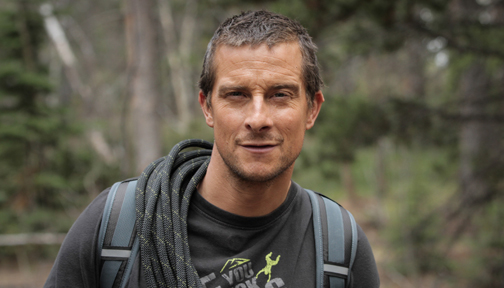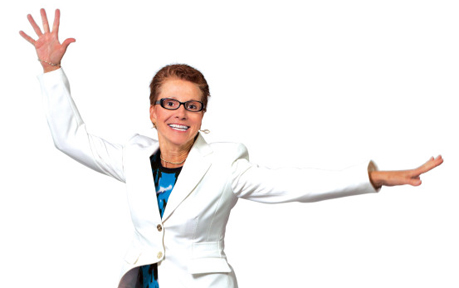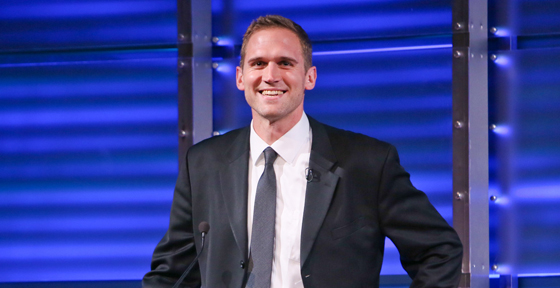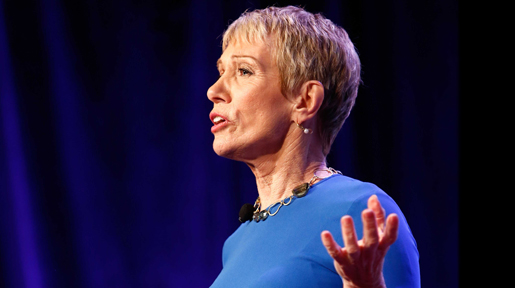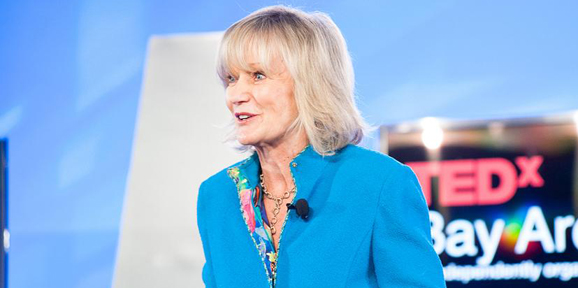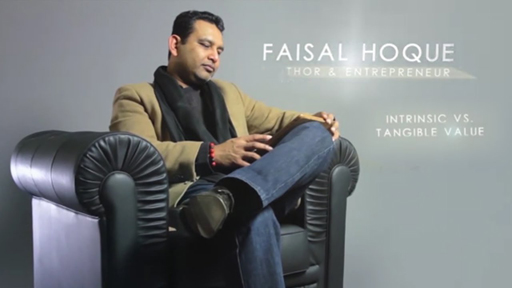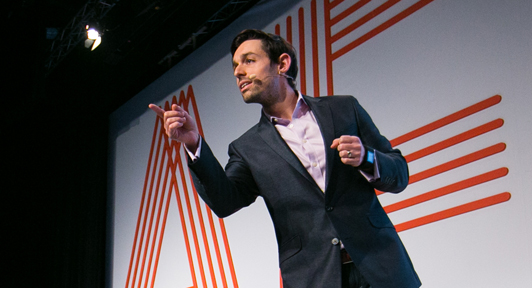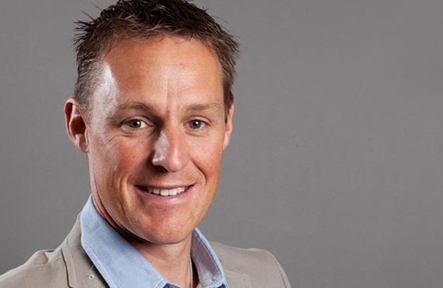
Inspiring Excellence with Paralympian Danny Crates
| For the first six months, I don’t think I truly accepted what happened, but I got through it by surrounding myself with friends. | |
| |
 | How did you come to terms with your disability after your accident? |
 | Initially I didn’t come to terms with the trauma, in my case losing a limb.
Hospitals provide you with security because you don’t have to think about the future. Once I was out of the hospital, though, I started to feel vulnerable. For the first six months, I don’t think I truly accepted what happened; but I got through it by surrounding myself with friends. It was only after returning to my rugby training six months later that my road to recovery really began. |
 | How do you maintain your "indefatigable optimism" in the face of difficult challenges? |
 | I am a very optimistic person. Don’t be fooled, though, just like anyone else I have my down periods. But generally I'm always looking forward, always aiming for something: a goal, a target or an ambition. I hold true to my belief that everything happens for a reason. |
 | What was one of your lowest moments and how did you overcome it? |
 | I’ve had many low moments, both in sports and in life. My lowest moment was in 2008 when I suffered from a torn disc in my back, and the Beijing Paralympics was only five months away.
At first, I wasn’t worried because I was in great shape: fitter, faster and stronger than in 2004 (when I set the World Record and won the gold medal at the Paralympic Games in Athens.) I was only supposed to be out of training for a couple of weeks. Unfortunately, when I returned to the track, I suffered further complications with my calf and my soleus. I was unable to run for five months. All I could do was cross-train on the bike, in the pool or at the gym. I did, however, get back to running and made it onto the team; but the day after I had the honor of carrying the flag at the opening ceremony, I tore my soleus muscle again and wasn't able to compete. That was a very tough time in my career. How did I overcome that period in my life? The same way as I always have—look ahead and set new goals, rather than dwell on what could have been. An athlete's entire career is about reaching optimal performance. |
| I understood that if I wanted to be successful, I would need to be fully committed. | |
| |
 | Do you think you would have achieved all that you have, if you had not had the accident that caused the loss of your right arm? |
 | I believe that I had the talent to achieve a lot before my accident, though not in running but my first love, Rugby. I had the talent, but I didn't understand that talent alone wasn’t enough. Attention to the finer details is what makes someone great at their chosen sport.
Prior to my accident, I trained when the team trained, but I wasn’t doing the extra work to make myself better than the rest. After my accident, I became more focused and determined. More importantly, I understood that if I wanted to be successful, I would need to be fully committed. This wasn't an overnight process—it happened over many years. When I felt I could achieve the next goal, I invested more of myself. |
 | Athletic training and overcoming a disabling accident requires a lot of discipline and focus, how do you keep the training fun? |
 | During my career, I always managed to keep a good work/life balance, much to my coach’s frustration. It was important for me to step away from being an athlete sometimes, either by working as a motivational speaker or letting off a bit of steam by going out with friends. |
 | In your book, Danny Boy, you acknowledge many people who've helped you, including your coach. What qualities does a coach need to have to help their athletes become more successful? |
 | I believe anyone can learn to be a coach; you can read about it in a manual. 800-meter runners all over the world do similar sessions, but what makes a great coach is someone who understands their athletes as individuals.
Sometimes, a few members of my training group would be doing the same session, but we all have slightly different twists on what we were doing. I was always a front-runner in training, so I was either told to hold back, or was given an extra rep first to change the dynamic of my session. It’s important that the coach and athlete both buy into the same plan and dream. I had that with my coach Ayo Falola. Every time I raced, it was as if he was there with me on the track. When things didn’t go well—as is often the case in sports—he would just laugh and say something like, "You won’t make that mistake again." Every experience, whether good or bad, affords you the opportunity to learn something, even if it’s "I won’t do that again." |
| Recognize your achievements, no matter how small. | |
| |
 | What are some of the more important things someone wishing to live a healthier lifestyle should focus on? |
 | You should focus on choosing something that you will enjoy and engage with, and keep your targets reachable.
For example, say you wanted to lose 50lbs. Break it down into much smaller increments, like one pound a week. It's a very simple trick to make things seem more manageable. Recognize your achievements, no matter how small. Focus only on that first step, and when you’ve achieved that, look at the next goal. It will all feel more achievable! |
 | What would you tell people who feel they cannot reach their goals because they have been told they are not good enough? |
 | Never be scared to aim for your goals and dreams, and never be the person who says "I could have been." It's much better to be the person who says "I tried to be." Even if it didn’t work out, you gained knowledge and experience from the journey. |
 | Who is your biggest inspiration and why? |
 | People who aren't professional athletes, but plays sports just for the love of it.
An example would be the rugby player who won’t even make the 3rd team, yet still trains just as hard (if not harder) as some of the 1st team players. They do so for the strongest reason: their passion for the sport and their determination to be the best they can be! =============================================== |

